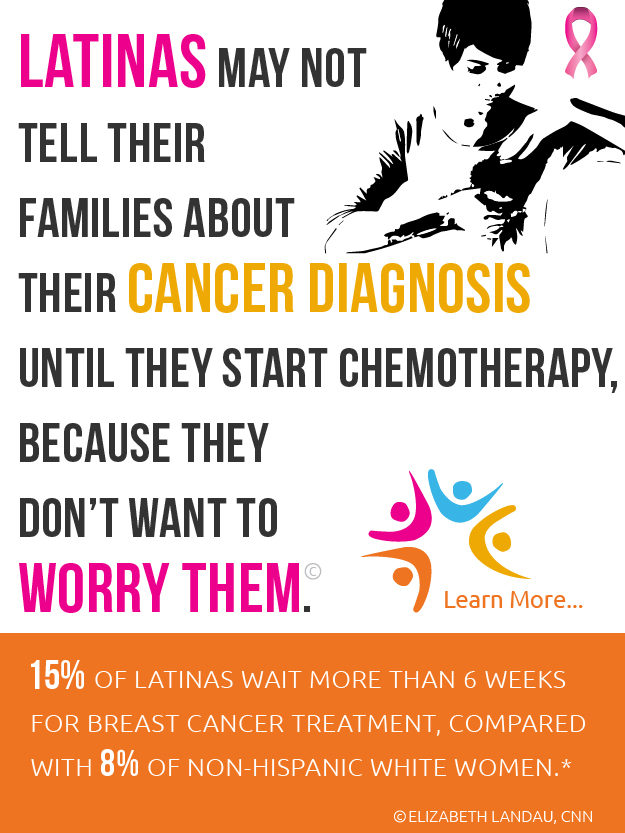
Hispanic Paradox Evident in New Thyroid Cancer Study
02/07/2014 04:37PM | 8846 viewsMinority, poor patients are more likely than others to be diagnosed with late-stage thyroid cancer, as indicated by a new study published in the Journal of “Endocrinology and Metabolism.“
According to researchers, poor patients from all racial groups had more advanced stages of disease at the time of diagnosis when compared to wealthier counterparts, but minorities fared even worse when compared to non-Hispanic whites as a whole.
Minority, poor patients are more likely than others to be diagnosed with late-stage thyroid cancer, as indicated by a new study published in the Journal of “Endocrinology and Metabolism.“
According to researchers, poor patients from all racial groups had more advanced stages of disease at the time of diagnosis when compared to wealthier counterparts, but minorities fared even worse when compared to non-Hispanic whites as a whole.
An anomaly researchers were unable to account for; however, was that pertaining to Hispanics and Asian/ Pacific Islanders. According to the data, both Hispanics and Asian/ Pacific Islanders were diagnosed with thyroid cancer in more advanced stages, but survived longer than patients from all other racial and ethnic groups. Study authors indicated more investigation into the disparity was needed before a reason for the survival gap could be identified.
“Race, social status, wealth and health-insurance coverage make a difference in how far a thyroid cancer has advanced by the time a patient first sees a doctor,” study author Dr. Avital Harari, said in a university news release.
Dr. Harrari is an assistant professor of general surgery in the School of Medicine at the University of California, Los Angeles.
But while income and race were relevant in the findings, the mortality disparity seen could not be explained.
The new findings only add to the list of diseases for which Hispanics have unexplained longevity. So many chronic illnesses have the same disparity that medical experts around the country have dubbed the phenomenon the “Hispanic paradox.” While the term does not explain why Hispanics, despite high rates of chronic illness, enjoy a life span longer than many other ethnicities, it does show a mutual acknowledgement from the scientific world regarding the Hispanic mortality disparity.
Some experts, like Jane L. Delgado, Ph.D., M.S., President and CEO of the National Alliance for Hispanic Health (NAHH), told Saludify in an earlier interview she does not believe the Hispanic paradox really exists, but rather there are no well-defined, Hispanic-specific health guidelines from which to base medical survival rates.
“The notion of Hispanic paradox was developed to explain data that documented that Hispanics had longer lives than non-Hispanic whites and have less heart disease even with a variety of risk factors,” explained Delgado. “The reason that Hispanics did not fit the model of health was because the model was at best inadequate. Unfortunately, the ‘paradox’ view hindered the development of new models of health as it was based on insufficient information about health and wellness for a variety of communities.”
According to Delgado, comparing ethnicities and races against one another is not an adequate measure of health within a community, but rather subgroups within those ethnicities should be evaluated and then compared.
Other experts disagree, stating there is now clear evidence the Hispanic paradox is very real. In early 2013 a research study confirmed Hispanics lived longer than non-Hispanic whites regardless of which health issue was being examined.
“Our study sought to address the mixed evidence by conducting a meta-analysis, a technique that allows researchers to combine all the available evidence into a single study to determine an overall finding,” said John Ruiz, Ph.D., assistant professor at the University of North Texas, Department of Psychology,
He also told told Saludify: “Using this approach we found that Hispanic ethnicity was associated with a 17.5 percent mortality advantage over non-Hispanics ,with clear differences among people who were healthy, who had heart disease, or who had a variety of other health conditions when they entered their respective studies.”
Whether or not the Hispanic paradox exists remains up for debate, but the evidence keeps mounting to support the existence of such a medical phenomenon. The recent thyroid cancer study is yet another instance where Hispanics come out on top in regards to mortality despite being diagnosed with more advanced stages of disease.











Post your Comment
Please login or sign up to comment
Comments